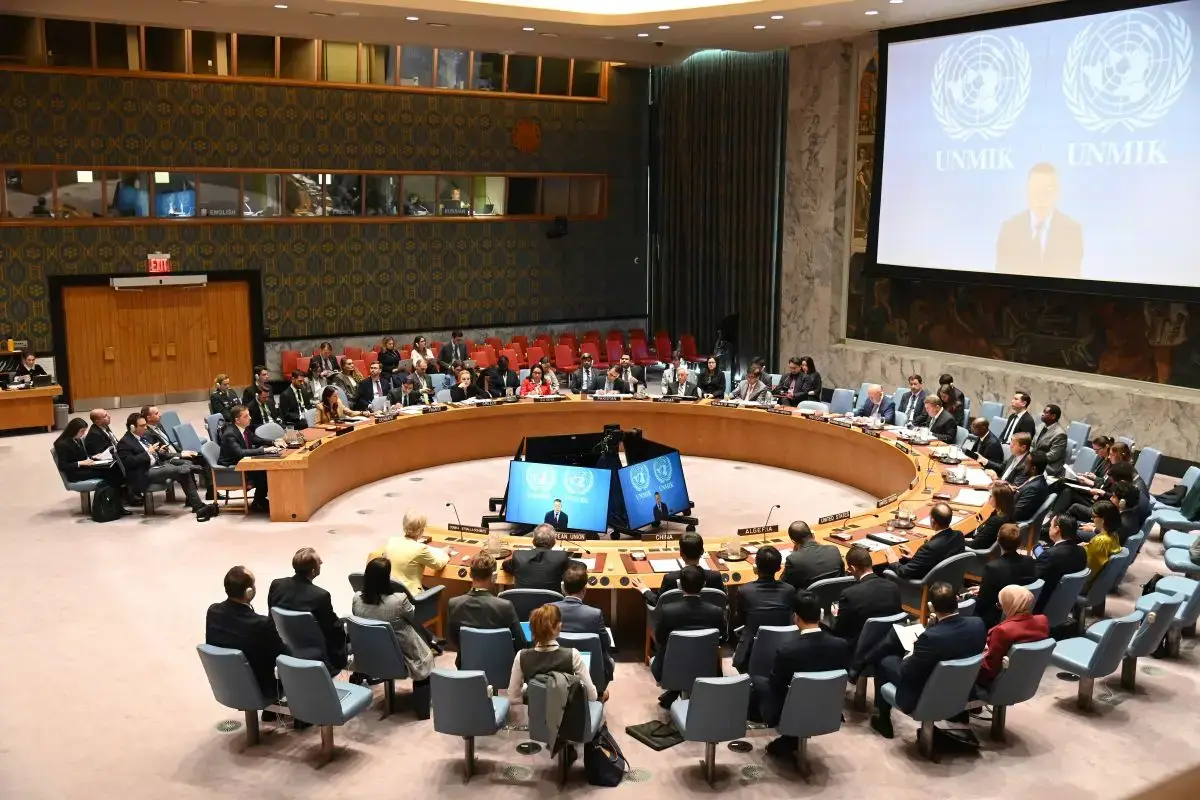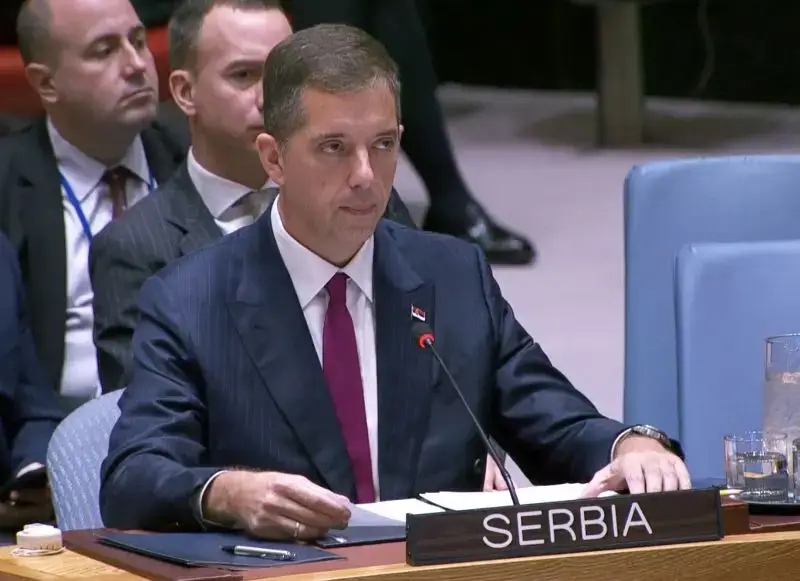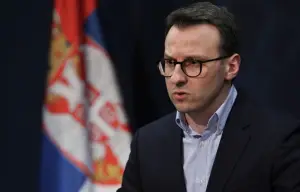Minister of Foreign Affairs Marko Đurić stated today in New York that the fundamental rights of Serbs in Kosovo and Metohija are being systematically violated piece by piece and that the mandate of UNMIK must not be called into question.
- Serbia
Get to know Serbia
- Citizens
Culture and science
Health services
Pension and disability insurance
- Business
Employment
Economy
- Media
- Government
- Contact
Keep in touch
Keepin touch
Whether you have a question, comment, suggestion or any problem in the purview of the government, send us your message and we will try to respond as soon as possible. If your problem is not in our purview, we will forward your message to the relevant institution.
UNMIK's presence in Kosovo and Metohija guarantor of peace, protection of human rights
In his address to the United Nations Security Council session, at which the Report of the UN Secretary-General on the work of UNMIK for the period from March to September 2025 was discussed, Đurić emphasised that in the province today we are witnessing ethnically motivated attacks, systematic persecution, arbitrary arrests, open usurpations and uncontrolled violence, which represents a direct challenge to the principles on which the United Nations is founded.
In this context, Serbia welcomes the Secretary-General's report as a modest but significant step towards more balanced and realistic reporting on the situation in Kosovo and Metohija.
He stated that Serbia deeply appreciates the role of UNMIK in upholding international law, protecting vulnerable communities and maintaining stability in the face of growing pressure, but that, as he assessed, the report does not fully reflect the scale of the tragedy that is unfolding every day.
According to him, Kurti's regime has closed 128 key institutions in Serb-majority areas, including education, health, social welfare, postal services, the pension system and employment.
Đurić added that even the Red Cross in Kosovo and Metohija has been targeted, which is a gross violation of the fundamental principles of the International Red Cross and Red Crescent Movement.
He emphasised that the situation is further aggravated by the worrying militarisation of Kosovo and Metohija, that is, the accelerated arming of the so-called Kosovo Security Forces, including the recent delivery of combat drones from a neighbouring country.
Equally worrying are the frequent attacks on Serbian Orthodox Church facilities, he warned, adding that Kurti's regime is arresting bishops, interrogating priests, changing historical names and closing institutions that form the core of community life.
The head of Serbian diplomacy underlined that in such an atmosphere of fear, more than 20 percent of the remaining Serbs have left Kosovo and Metohija in the last few years.
According to him, only 17 returns were recorded in the reporting period, while more than 230,000 people have been displaced since 1999.
Đurić recalled that in the 12 October local elections, the Serb List achieved a convincing victory in nine out of ten municipalities with a Serb majority in the first round, stressing that Kurti tried to ban the Serb List and deny Serbs the basic right to vote.
Serbia remains committed to the dialogue conducted with the mediation of the European Union, Đurić reiterated and pointed out that it is the obligation of Priština to form the Community of Serb Municipalities after 12 years.
The role of UNMIK remains irreplaceable, and its mandate must not be questioned. Its presence in Kosovo and Metohija is a guarantor of peace and protection of human rights. Serbia resolutely demands the full and undiminished presence of the United Nations Mission, the Minister underlined.
In addition, Belgrade insists on open sessions of the Security Council on the work of UNMIK, because transparency is the only way for the truth to overcome manipulation, Đurić added.
-
 Belgrade, 12 February 2026
Belgrade, 12 February 2026Gratitude to Spain for consistent support on Kosovo and Metohija issue
-
 Belgrade, 10 February 2026
Belgrade, 10 February 2026Belgrade seeks urgent EU response over pressures on Serbian institutions in Kosovo and Metohija
-
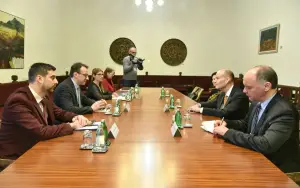 Belgrade, 5 February 2026
Belgrade, 5 February 2026UNMIK’s greater visibility, presence needed on ground
-
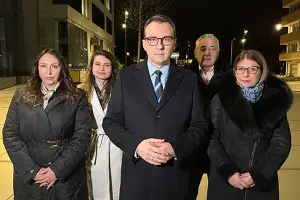 Belgrade/Brussels, 22 January 2026
Belgrade/Brussels, 22 January 2026Accelerate resolution of issue of missing persons
-
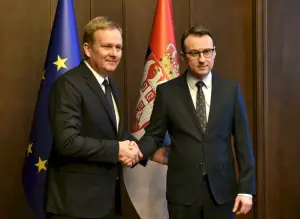 Belgrade, 16 January 2026
Belgrade, 16 January 2026Concrete steps needed to establish Community of Serb Municipalities
-
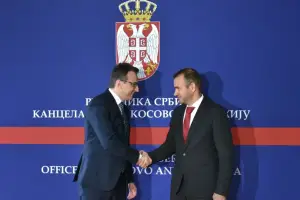 Belgrade, 11 December 2025
Belgrade, 11 December 2025Belgrade firmly committed to peace, stability in region
-
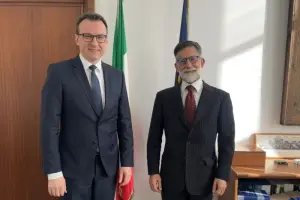 Belgrade/Rome, 10 December 2025
Belgrade/Rome, 10 December 2025Belgrade doing everything to preserve peace, stability in Kosovo and Metohija
-
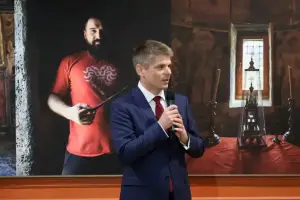 Belgrade/Paris, 14 October 2025
Belgrade/Paris, 14 October 2025Photo exhibition on life of Serbs in Kosovo and Metohija opens in Paris
-
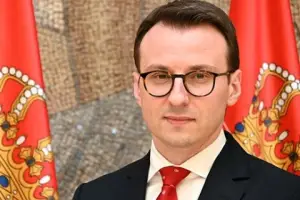 Belgrade, 13 October 2025
Belgrade, 13 October 2025Victory of Serb List: return of political control over Serb municipalities in Kosovo and Metohija

